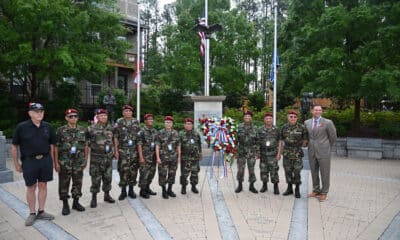Community
Assistance League to Mark 40 Years of Partnering on Charitable Programs
Published
3 years agoon
By
John Ruch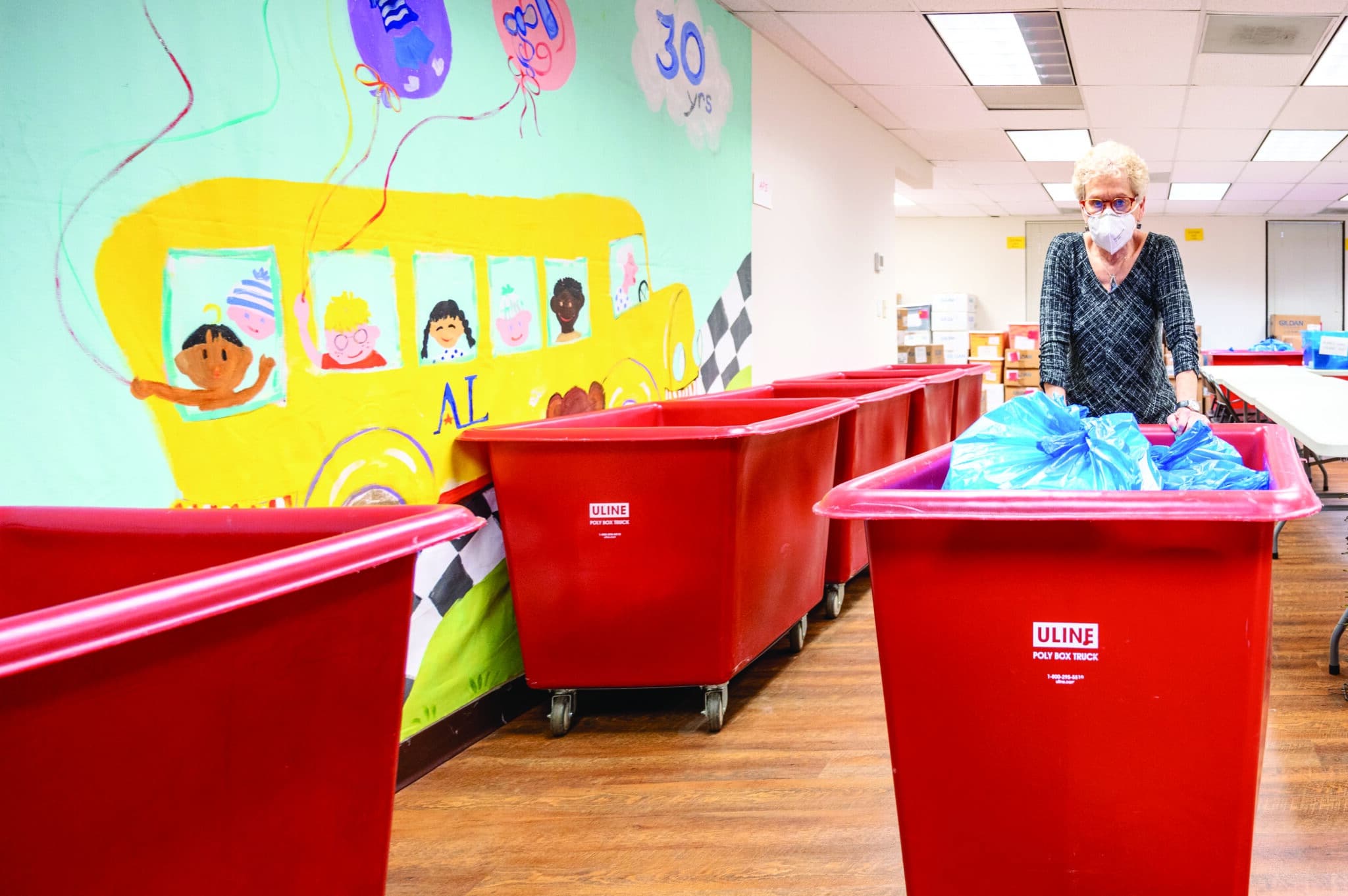
The Assistance League of Atlanta this year marks its 40th anniversary of charitable programs in the metro area. Partnering with many schools, hospitals and other nonprofits, the group serves around 50,000 people a year. And since 2016, it’s all been organized at its headquarters in Peachtree Corners.
“The organization is totally volunteer. We have no paid employees,” said Ellen Frank, the chapter’s board president. “When you realize how complex it is, it’s kind of amazing we don’t have a paid executive director or any staff.”
Known for its Attic Treasures thrift shop in Chamblee, the Atlanta group is one of 120 nationwide chapters of the California-based Assistance League. Members of the local chapter — currently numbering around 250 — pay $75 annual dues, of which $25 goes to the national organization for training, support and marketing. All chapters determine their local partnerships, but also participate in the national’s signature program, Operation School Bell, which provides school clothes to students in need.
“As you can imagine, Atlanta, as a major metropolitan area, is a contributor, a major contributor, to our efforts as a national organization,” said Matt Zarcufsky, the mother organization’s executive director. He praised the Atlanta chapter as “a group of very committed volunteers.”
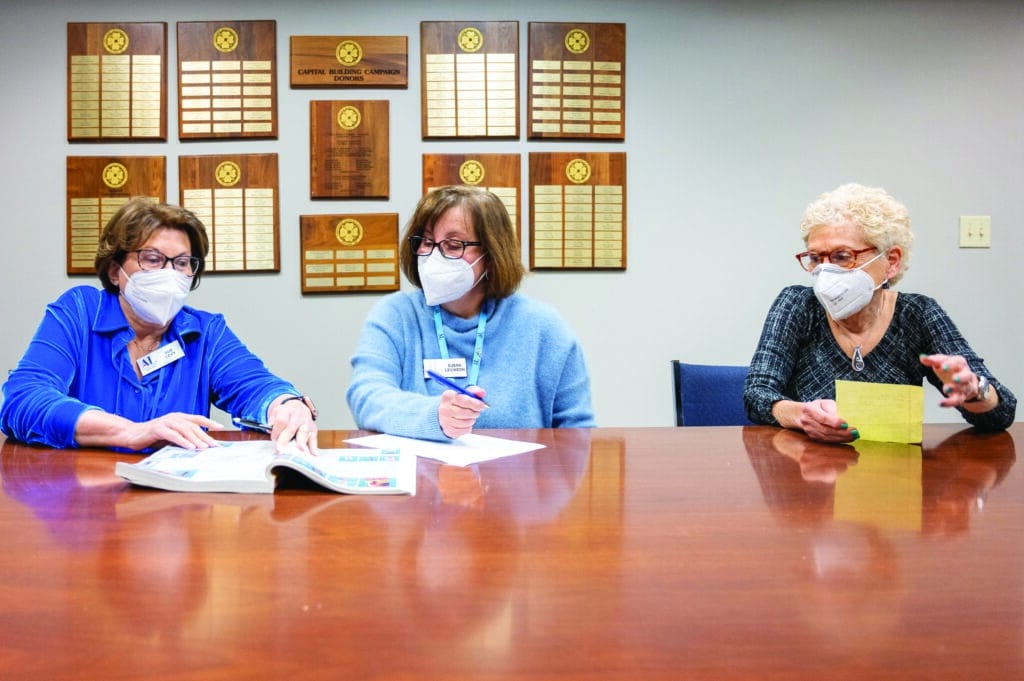
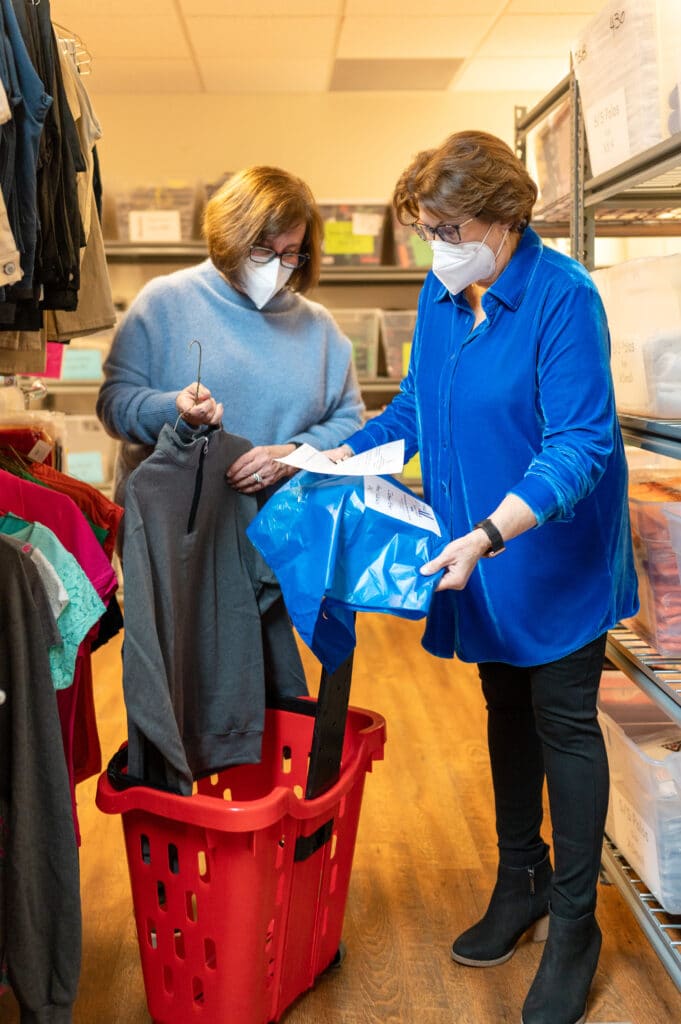
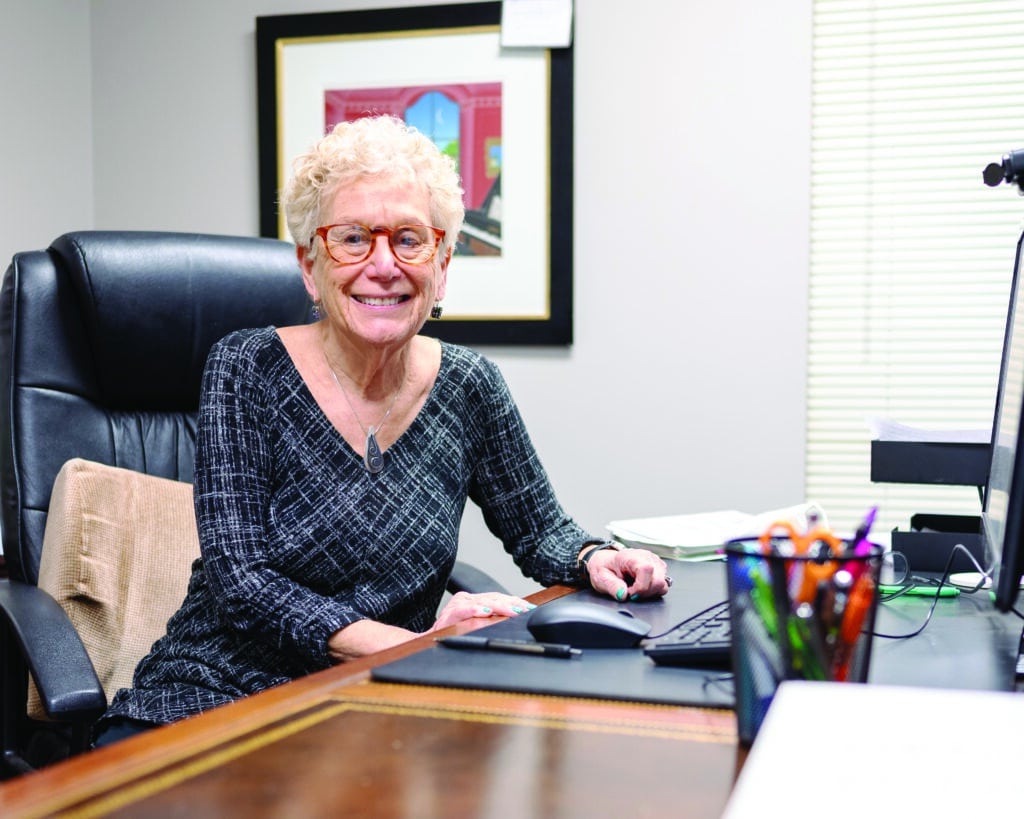
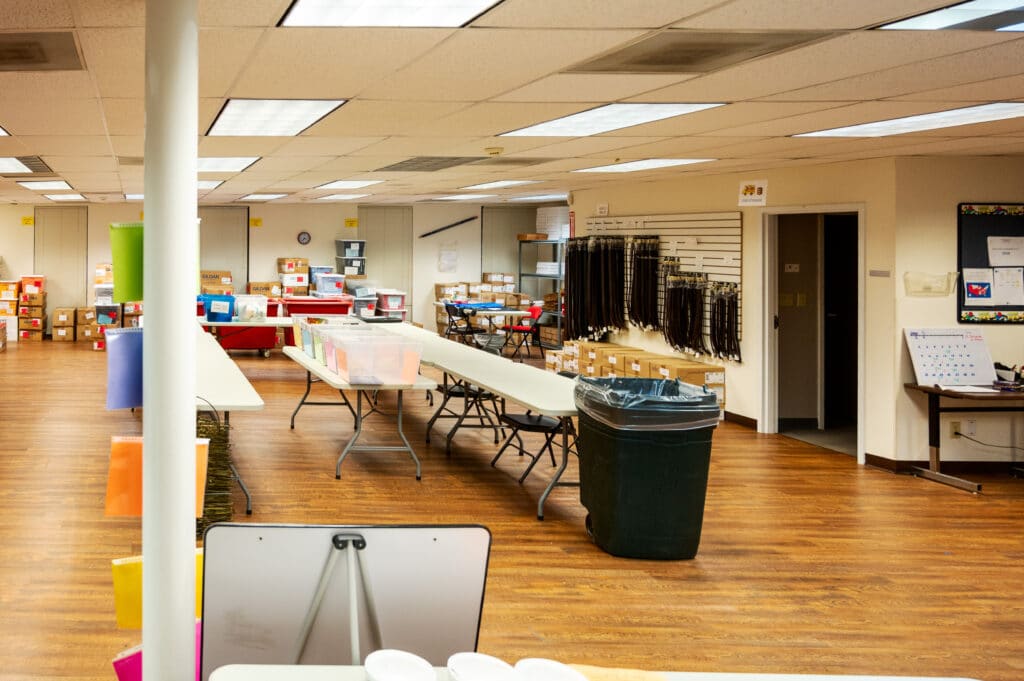
A history of giving
The Assistance League’s roots date to 1890s Los Angeles and charitable work by philanthropists Anne Banning and Ada Edwards Laughlin. In 1919, they formalized their organization as the Assistance League of Southern California. The national version was organized in 1935.
Today, there are chapters in 26 states. The latest stats available, for roughly the year before the COVID-19 pandemic affected operations, showed the chapters collectively served about 1.37 million people and had about 20,000 volunteers.
The Atlanta chapter was formed in October 1982 by a group of 34 women who started with the Operation School Bell program. As a fundraiser, they sold “senior citizens’ crafts,” renting a small building in Chamblee they called the “Mouse House.”
The organization grew over time, and in the late 1990s undertook a $1.3 million capital campaign to build a thrift shop and headquarters. That opened in 2000 at 3534 Broad Street in Chamblee, which remains home to the 13,000-square-foot thrift shop – a major revenue source, according to Frank, as it pulls in about $700,000 a year.
The chapter outgrew that space as well, but had trouble finding property in Chamblee as real estate values rose. In 2016, the organization bought an office building at 6264 Crooked Creek Road in Peachtree Corners as its “Philanthropic Center.”
Programs and partnerships
Operation School Bell remains an anchor program, with students at the local Peachtree Elementary school among the recipients, as well as many DeKalb and Fulton county schools. But the chapter partners on many other programs as well, largely centered on providing some kind of needed goods like clothing and food.
The long list includes hygiene and household items for homeless people in Atlanta’s Gateway Center and Nicholas House; teddy bears for patients in Children’s Healthcare of Atlanta hospitals; work clothing and MARTA cards for women in addiction recovery at Sandy Springs-based Mary Hall Freedom House; special clothing for patients at Atlanta’s Shepherd Center rehabilitation hospital; used books for school kids and scholarships to some metro colleges.
A lot of those programs fulfill needs rooted in such social issues as poverty. The Atlanta chapter does not get involved in addressing such issues directly – “We can’t do everything,” says Frank — and also rarely runs a program itself, instead working with other groups or social workers.
“Actually, all of our programs are partnerships,” said Frank. “We are not dealing with the public on a one-to-one basis except in the thrift shop.”
But it requires a lot of work from Assistance League members, who often hand-pack care packages and other items. Membership is especially popular among retirees, said Frank, herself a former insurance adjuster who joined in 2015.
“I love it because when I retired, I wanted to volunteer, and this particular program gives me a lot of flexibility,” she said. “…There’s always something to do.”
Frank also lived in Peachtree Corners for 27 years before more recently moving to Dunwoody. “I lived there when it was still Norcross. So it was very exciting to see Peachtree Corners become a city in itself,” she said. “And of course, when that happens, a lot of changes happen for the best, especially the new shopping center and the new Town Center.”
Challenges from the pandemic
Like everyone else, the Assistance League has faced dramatic challenges from the COVID-19 pandemic — increased demand for services overall and difficulty in having in-person volunteering. Frank said COVID has brought, “as our national [directors] would call it, the new norm, and the new norm is to be adaptable.”
Zarcufsky said that at the national level, the organization is looking at ways to continue providing goods to people in need in different ways. But it’s also thinking of other ways to serve or operate even the signature school programs.
“So we’re looking at opportunities to not just be charitable and provide goods, but looking at ways we can participate and engage with students in other ways like tutoring,” he said.
The local chapter had a big pivot to make with the thrift shop, which was closed for a while, then reopened with pandemic precautions. An online version was launched on eBay as well and has been a success, Frank said. In fact, she said, the shop is keeping pace with pre-COVID sales despite the turmoil.
The organization also has some changes in programs like a literacy week coming in February to Peachtree Elementary. Instead of some traditional face-to-face programming, the Assistance League is providing students with a bag containing a book, a Beanie Baby doll and some food items. The bag will encourage students to try “reading with a friend” — meaning the Beanie Baby.
The latest wave of the pandemic also affected the chapter’s plan to invite neighbors to get to know the organization through tours of the Peachtree Corners headquarters. A January tour was canceled, but the group hopes to get that rolling later this year, and also has a grant committee always seeking donations.
“And we’re always looking for members,” said Frank. “We’d love to have people come and see what we do, and you make new good friends.”
For more information, see assistanceleague.org/atlanta.
Related
John Ruch is a journalist with SaportaReport and Buckhead.com in metro Atlanta. His freelance work has appeared in such publications as the Washington Post and the Seattle Times. In his spare time, he writes fantasy novels.

City of Peachtree Corners
A Look at this Year’s Memorial Day Challenge and Ceremony
Published
11 hours agoon
June 10, 2025
On Memorial Day last month, Peachtree Corners residents, officials, veterans and business leaders joined together on the Town Green to honor those who made the ultimate sacrifice for their nation.
The day started with a special 9 a.m. ceremony at the city’s Veterans Monument to recognize that sacrifice and honor the lives of those who died while serving. As in previous years, the ceremony was organized by the Peachtree Corners Veterans Association and included the raising of the flag, placing of the wreath, remarks from city officials and a moment of silence.
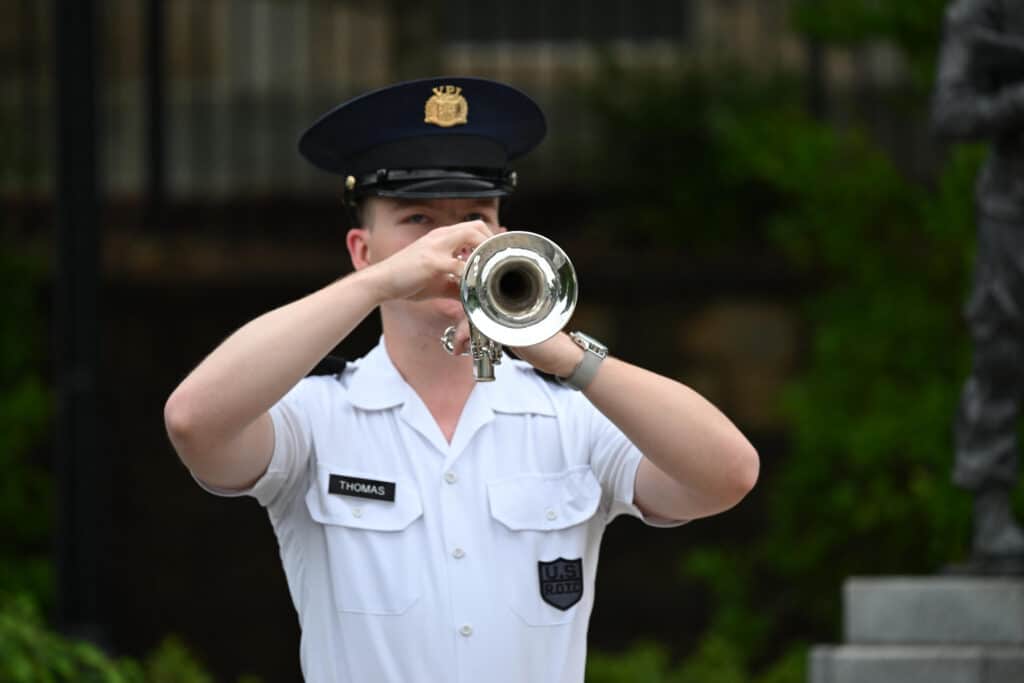
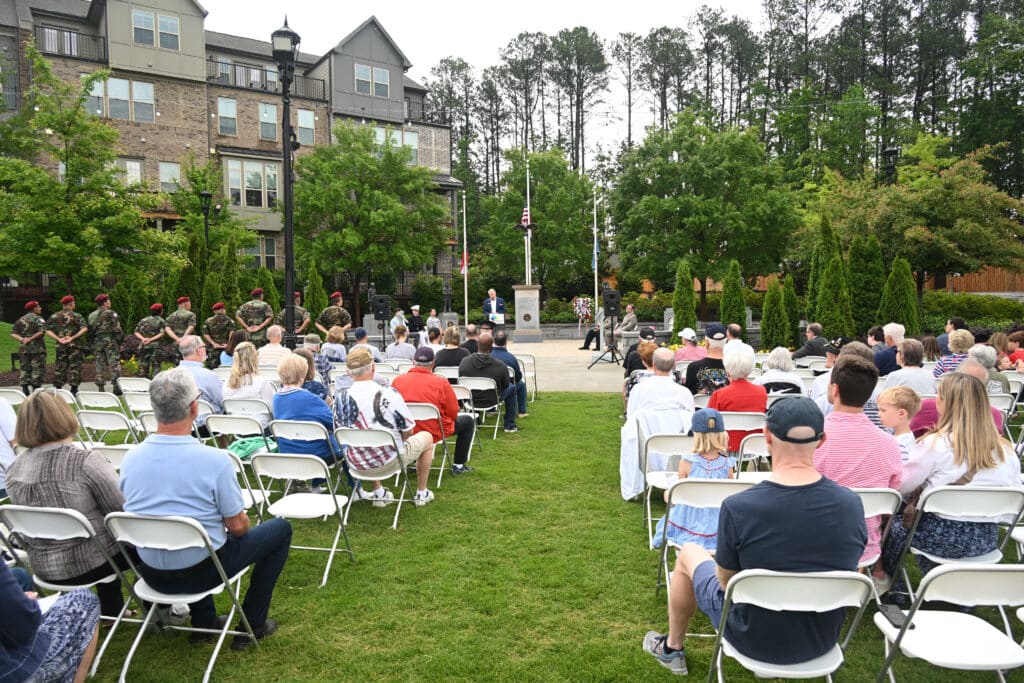
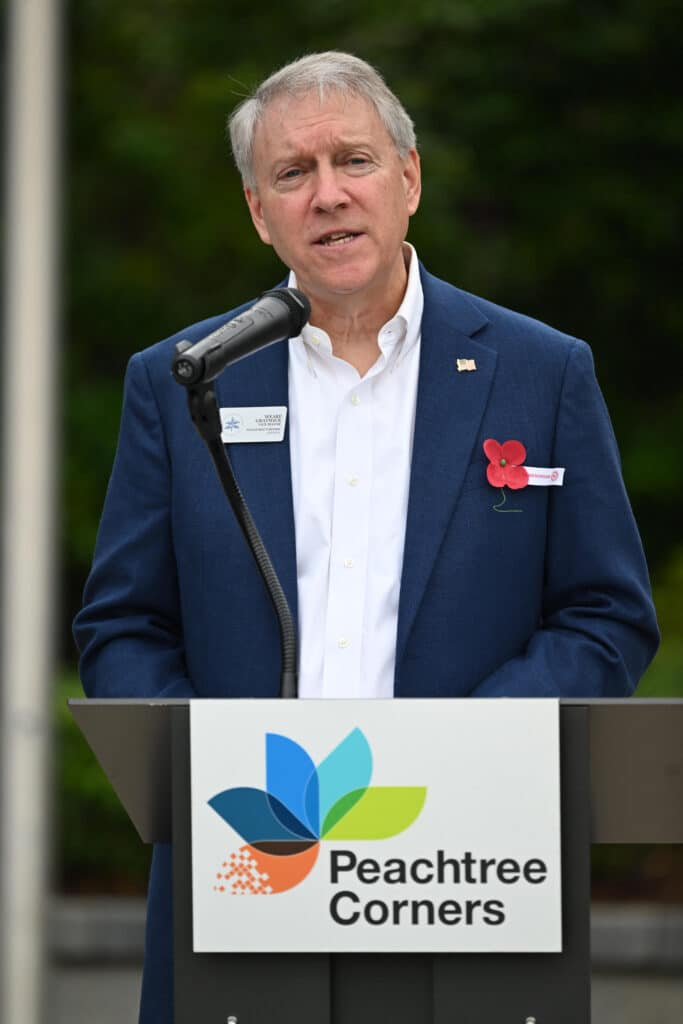
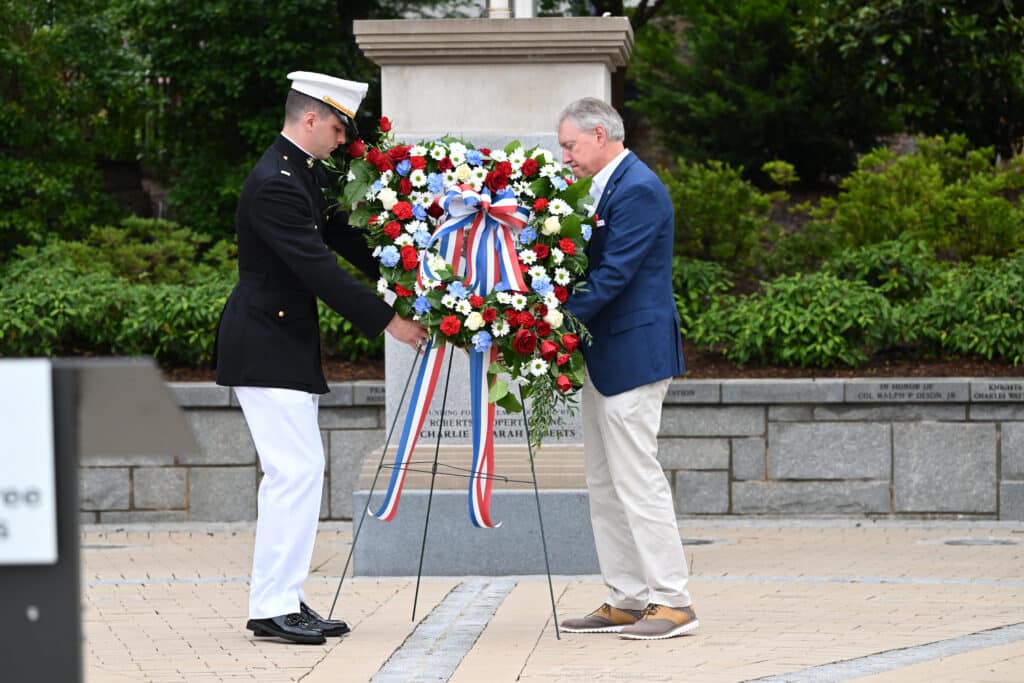
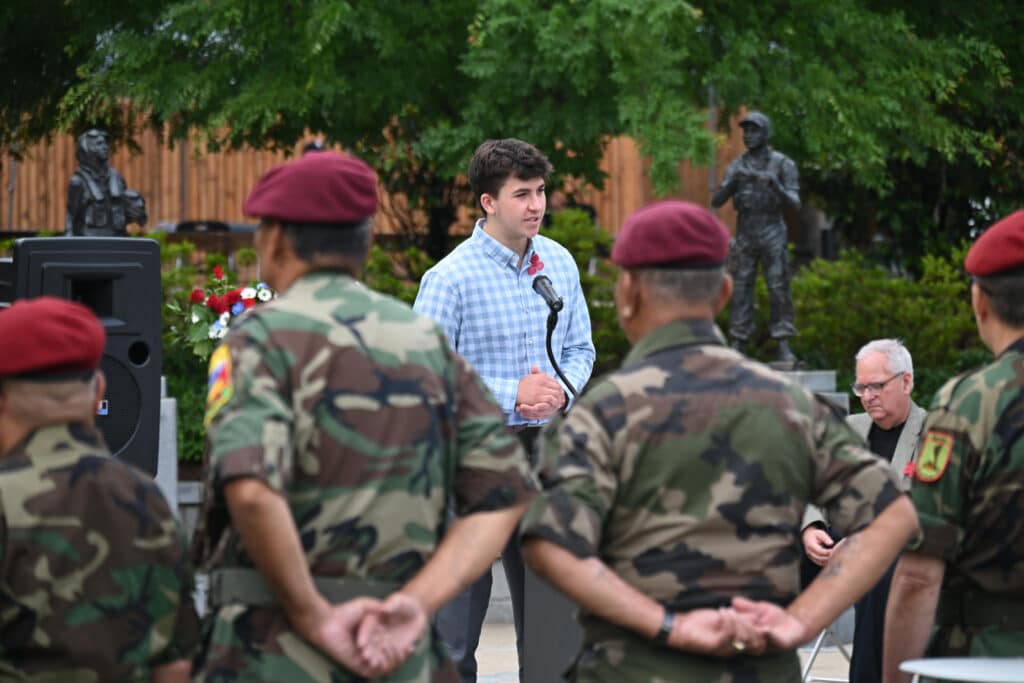
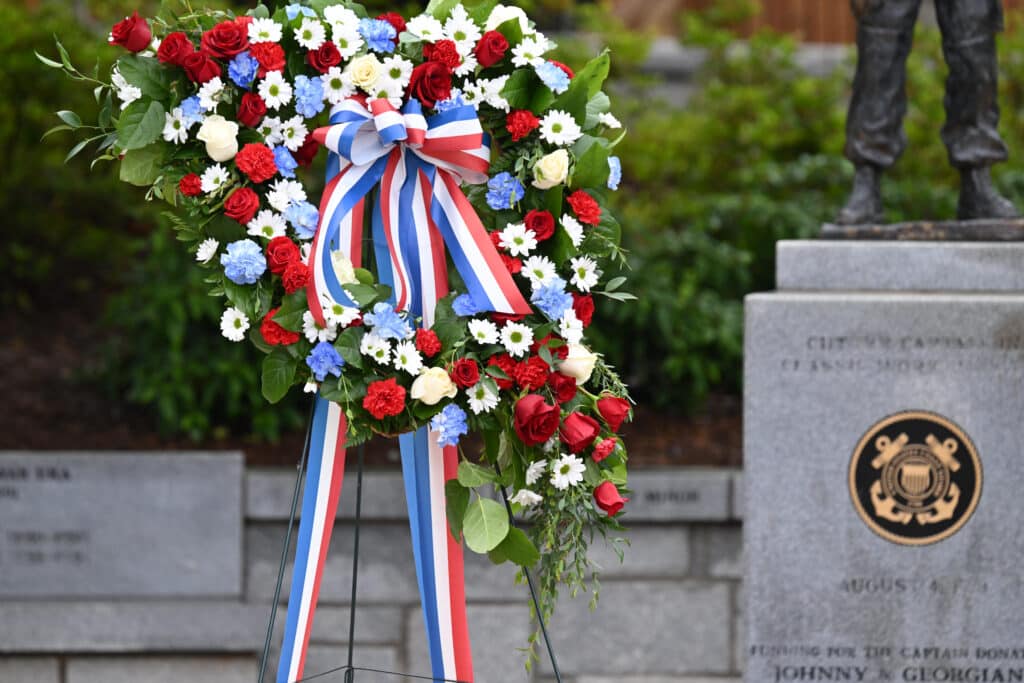
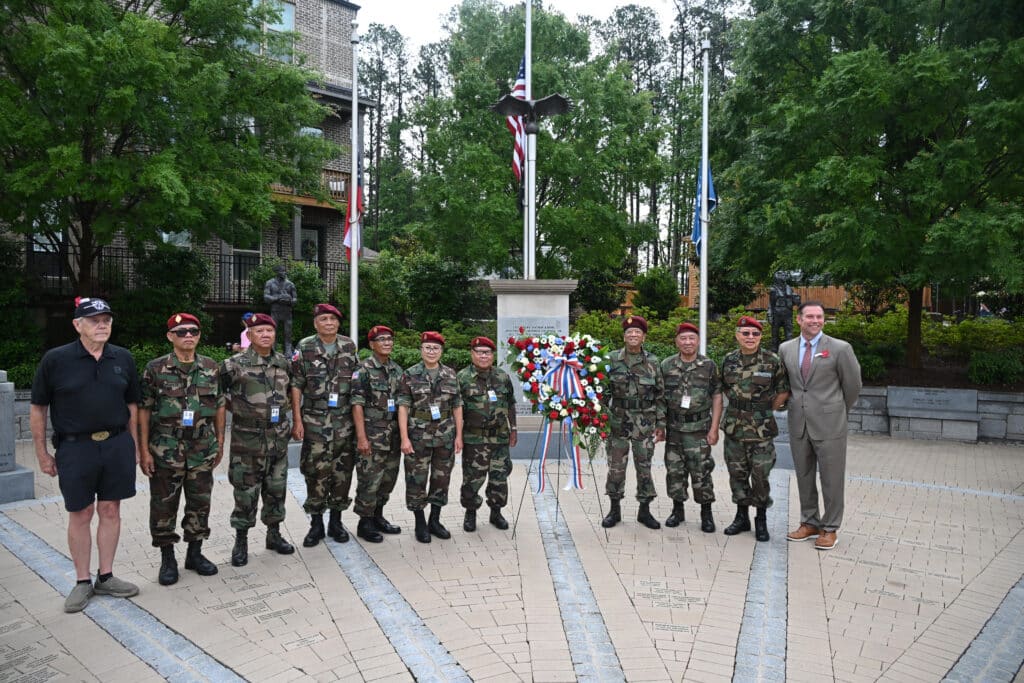
For this year’s event, three keynote speakers — each connected to the community and now at a different place in their journey of service to our nation — were also invited to address the gathered crowd.
The 2025 keynote speakers
Sean Balderas (Norcross High 2025) — Sean was accepted to the Naval Academy and begins his military career there this fall.
Kellen Grave de Peralta (Norcross High 2020) — Kellen graduated from the Naval Academy in May and will attend flight school as a 2nd LT in the Marines.
Justin White (Wesleyan School graduate) — Justin graduated from the USNA in 2014 and completed his service commitment a few years ago as a Marine Officer. He now works as a consultant for Bain & Company.
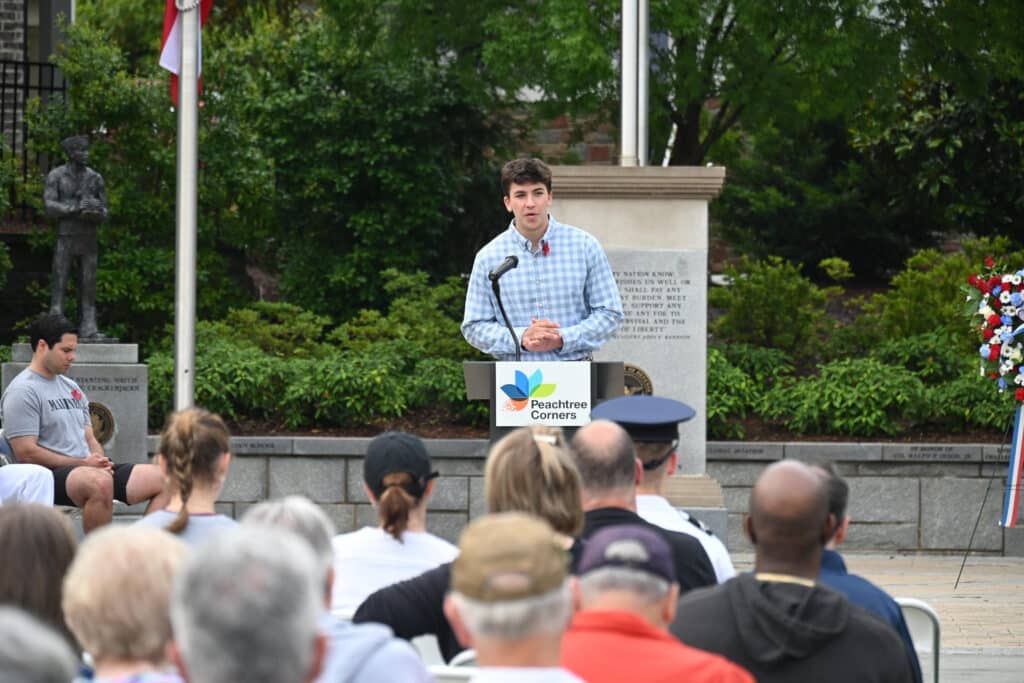


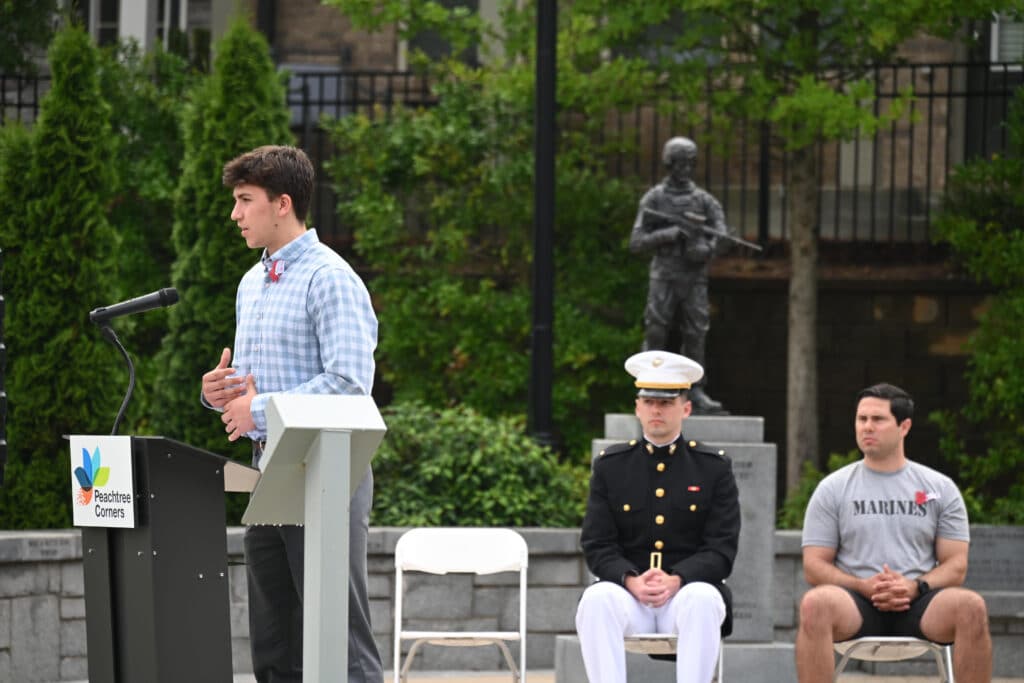
Each speaker talked about what Memorial Day means to them and also shared their thoughts on the importance of service.
Memorial Day Youth Challenge 2025
Following the ceremony, the city and the PCVA hosted the Memorial Day Youth Challenge.
Held at Town Green’s Fort Pain, the challenge is a thrilling obstacle course-themed physical competition for kids and teens ages 9 to 18 with the purpose of increasing the knowledge and appreciation of Memorial Day and those we honor.
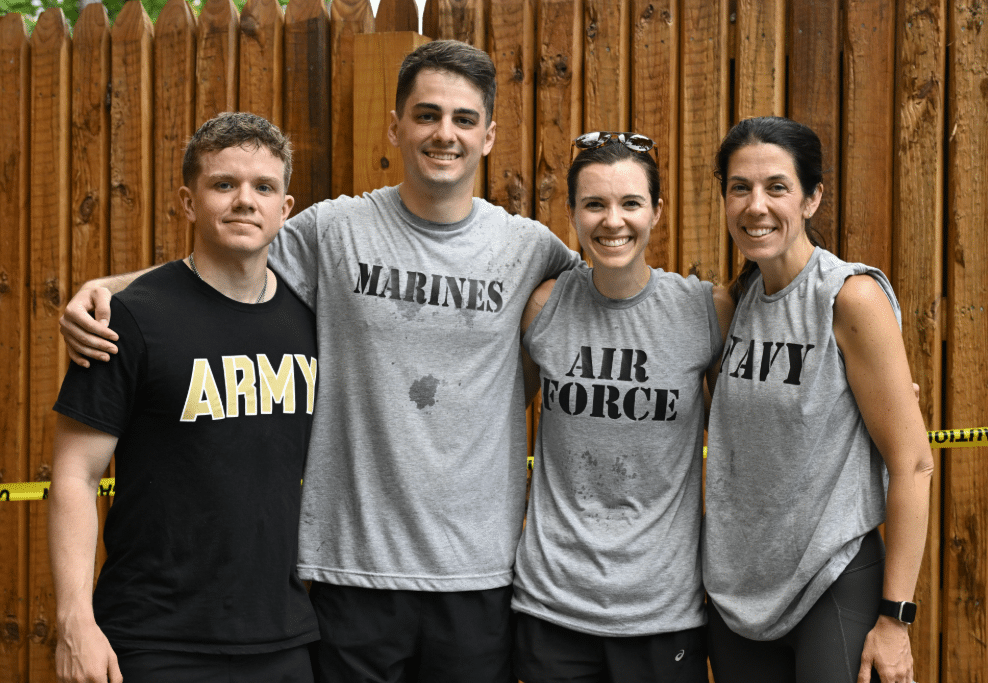
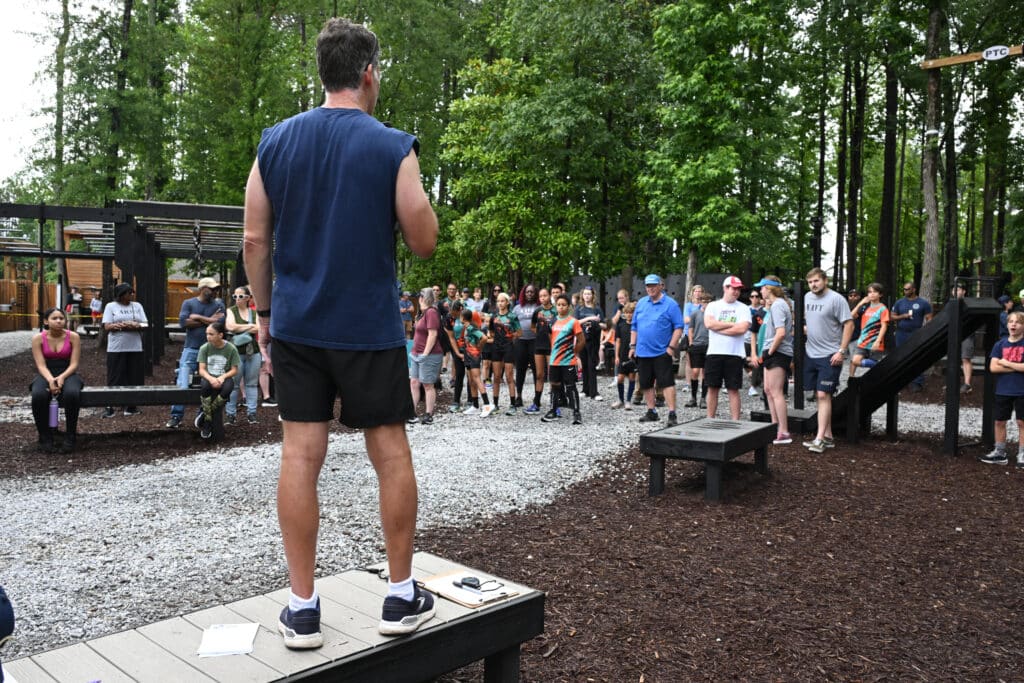
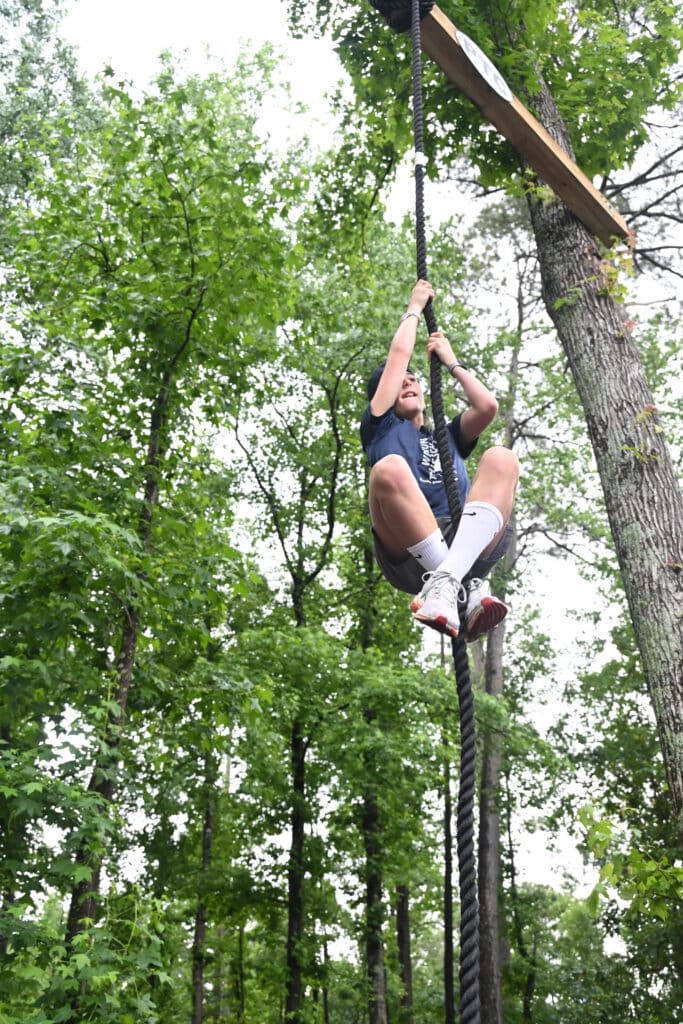
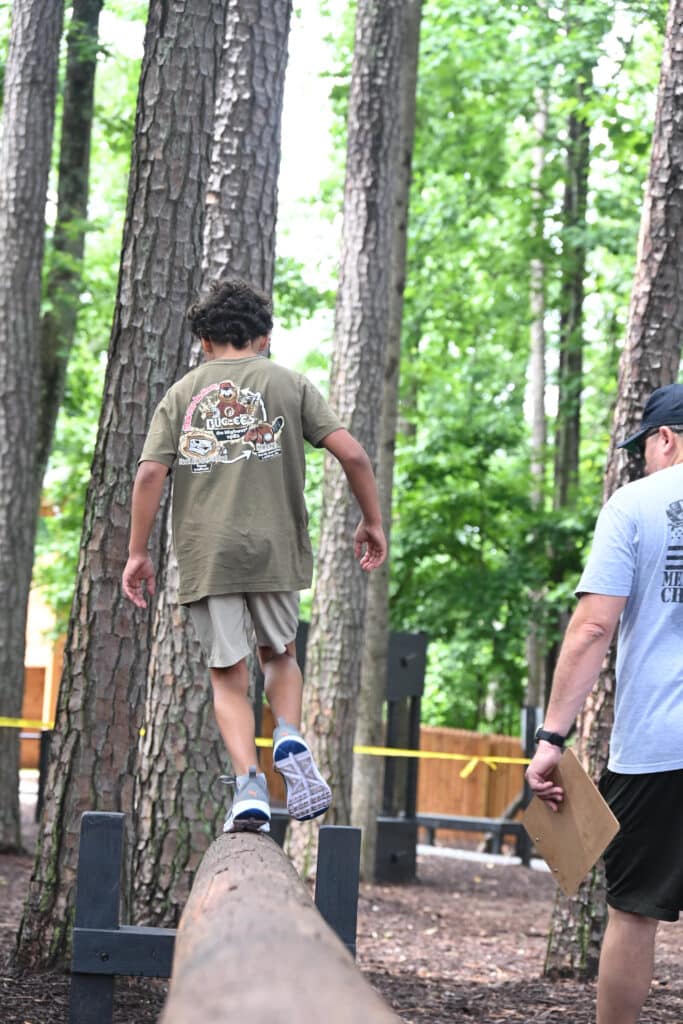

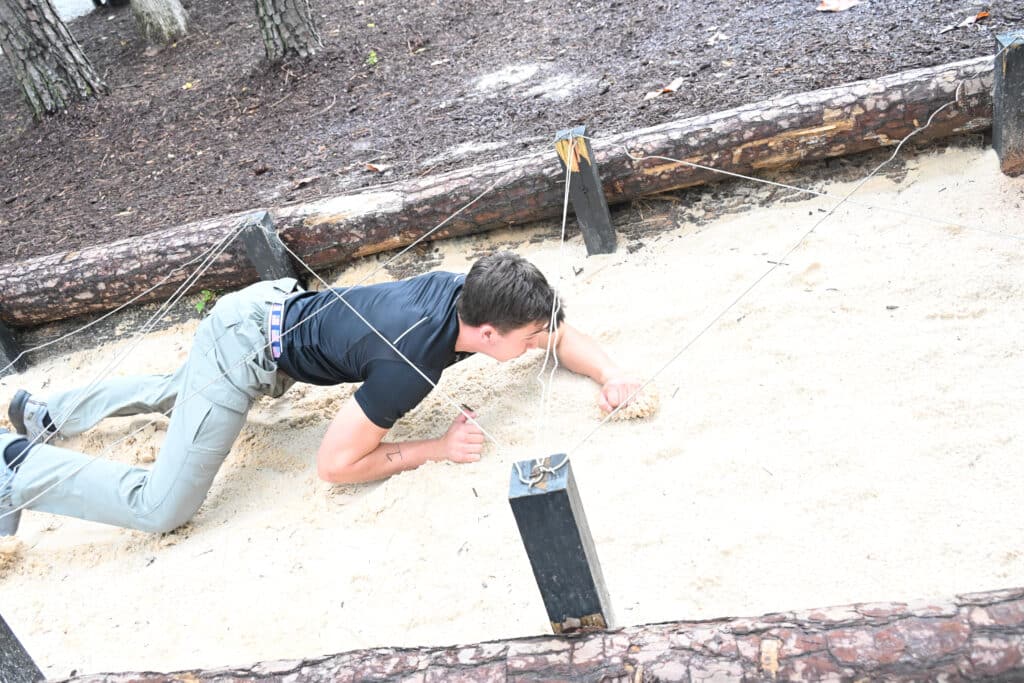
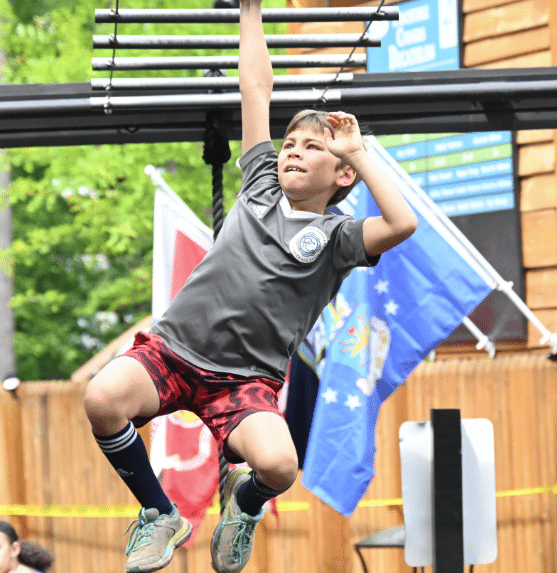
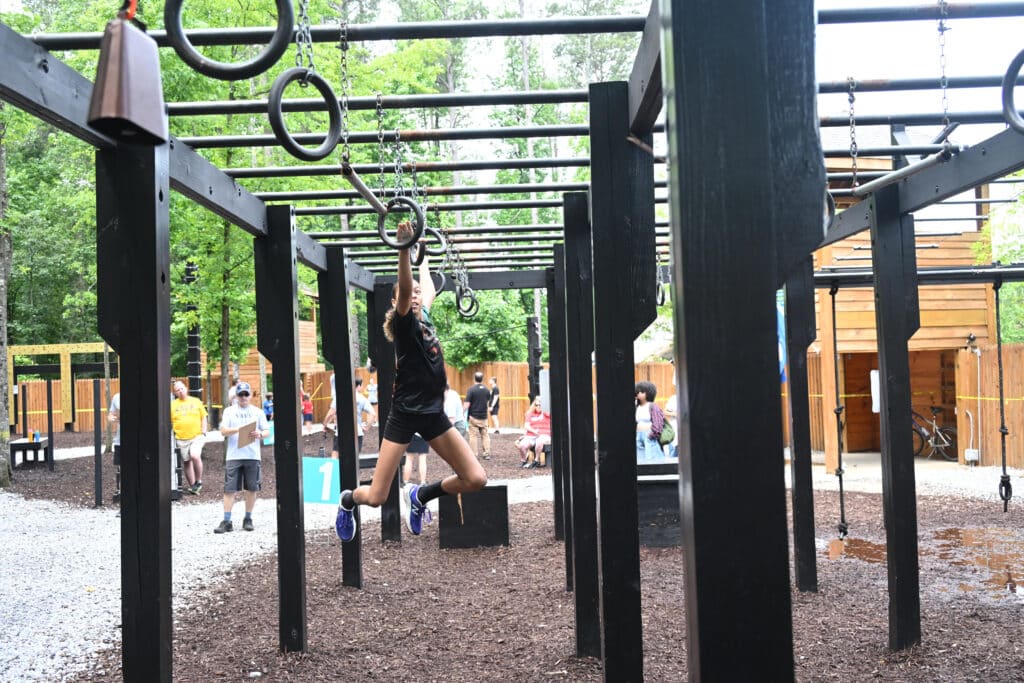
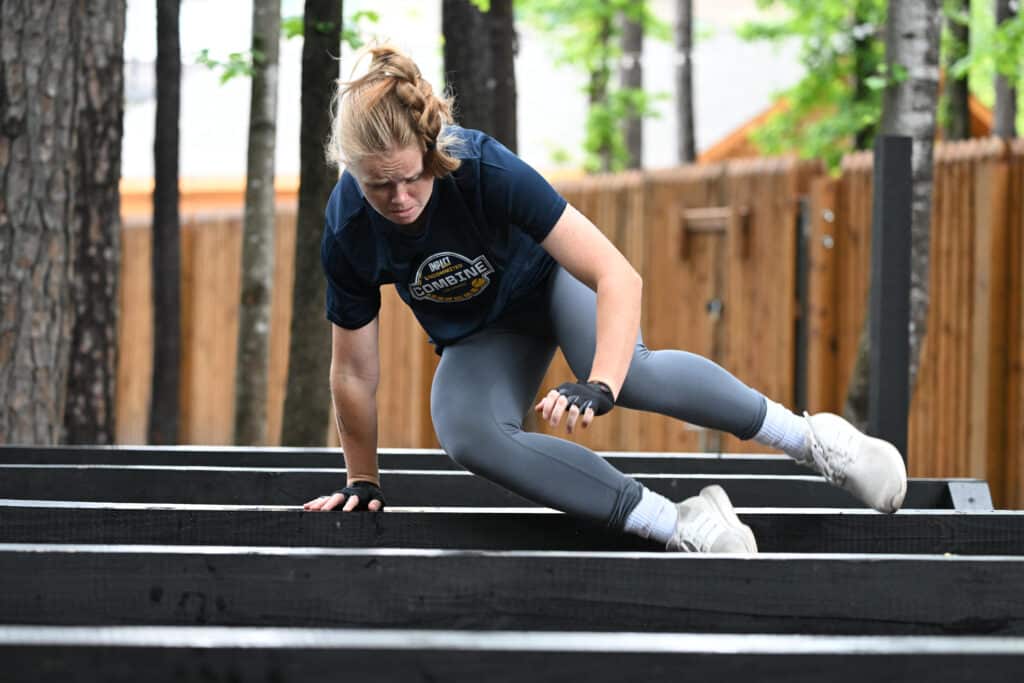
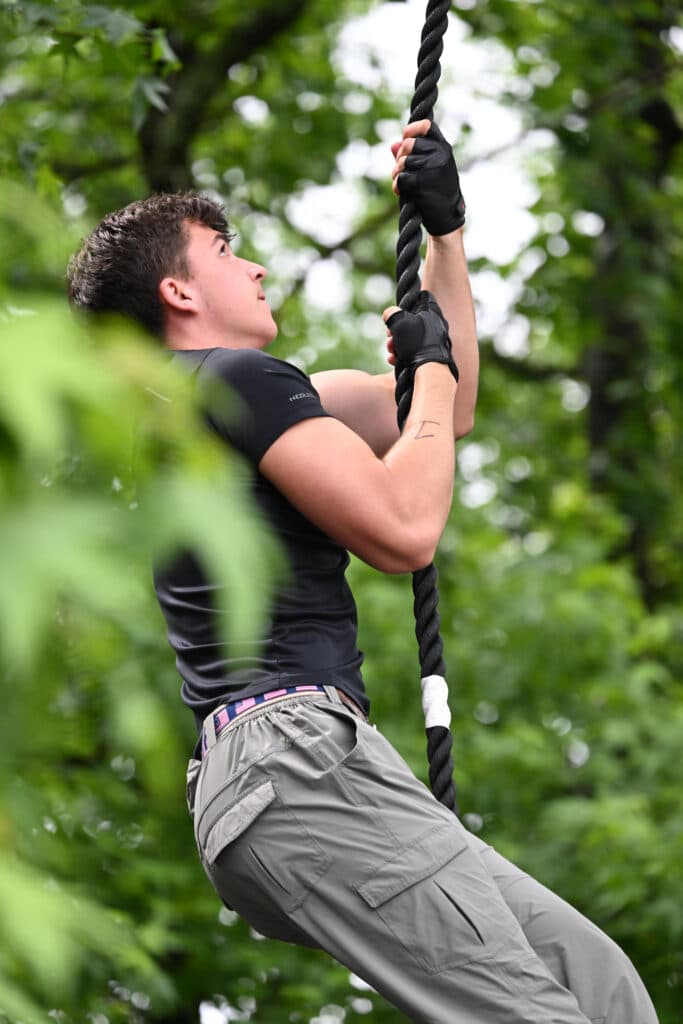
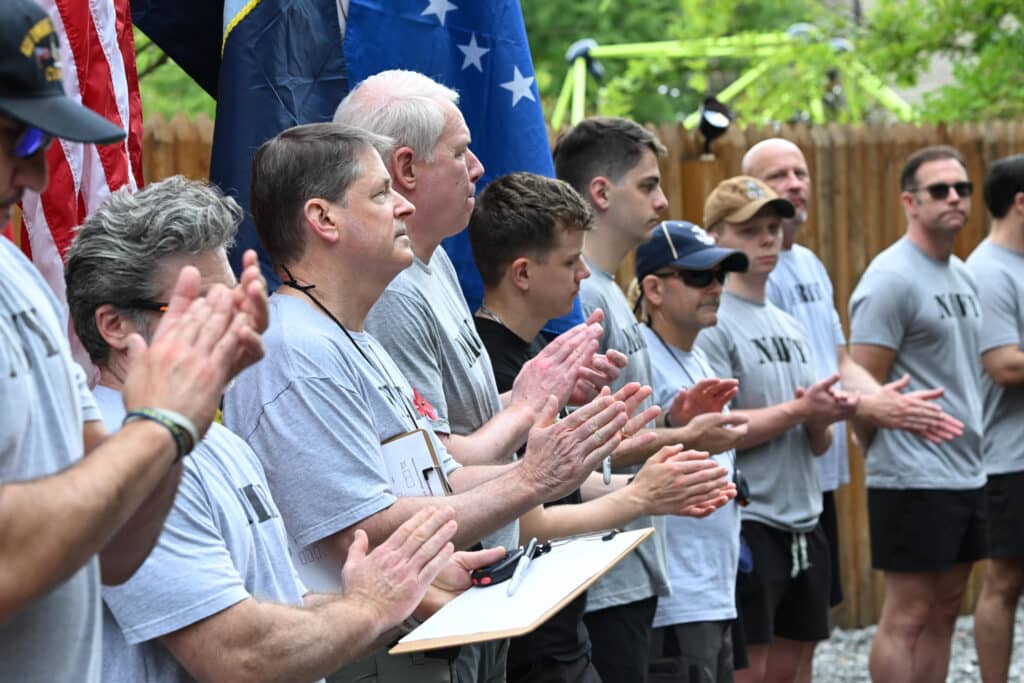

Each participant was paired with a veteran who served as their judge, safety spotter and cheerleader as they worked their way through the course. Family members and spectators also added to the excitement of the challenge, cheering on the competitors as they gave their all to complete the course in the fastest time.
According to Alex Wright, former U.S. Naval officer, Peachtree Corners councilmember and a founder of the Memorial Day Challenge, the event had a full field of 45 on race day (with eight no-shows), and 37 racers completed the course.
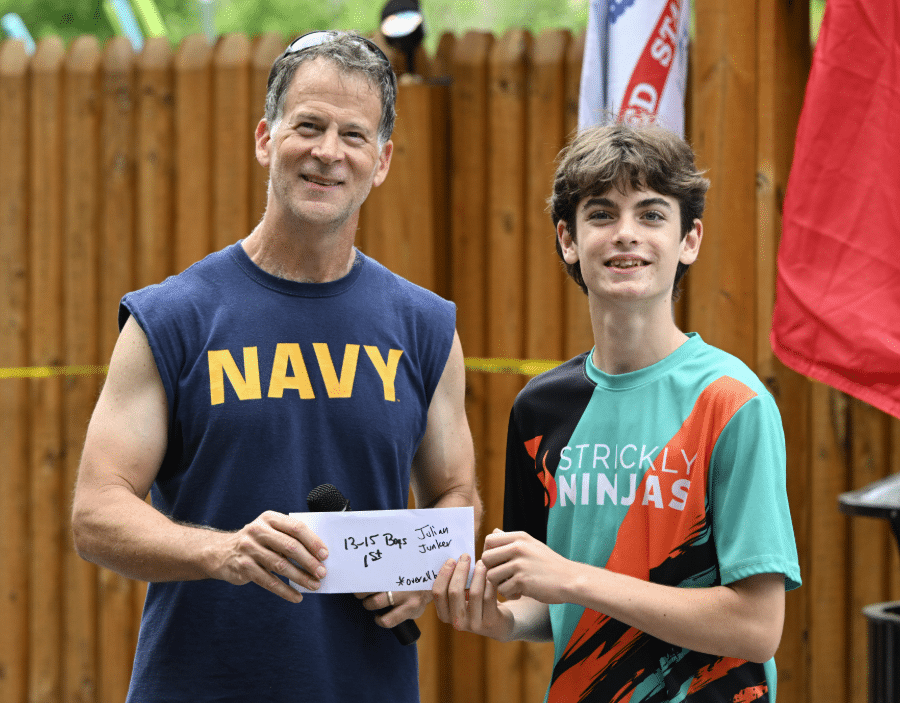
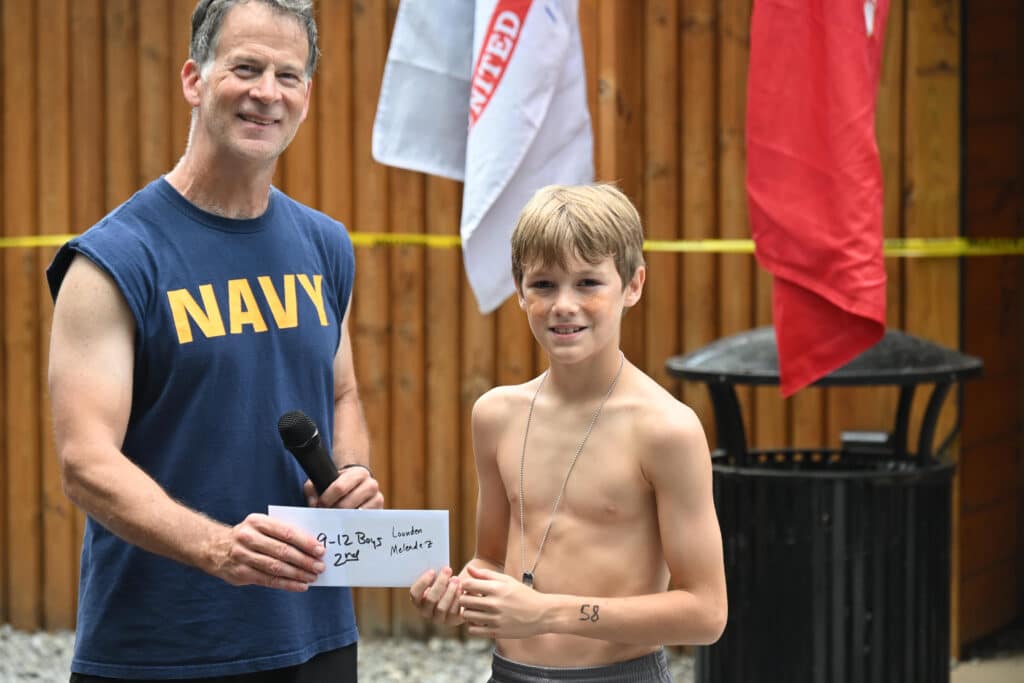

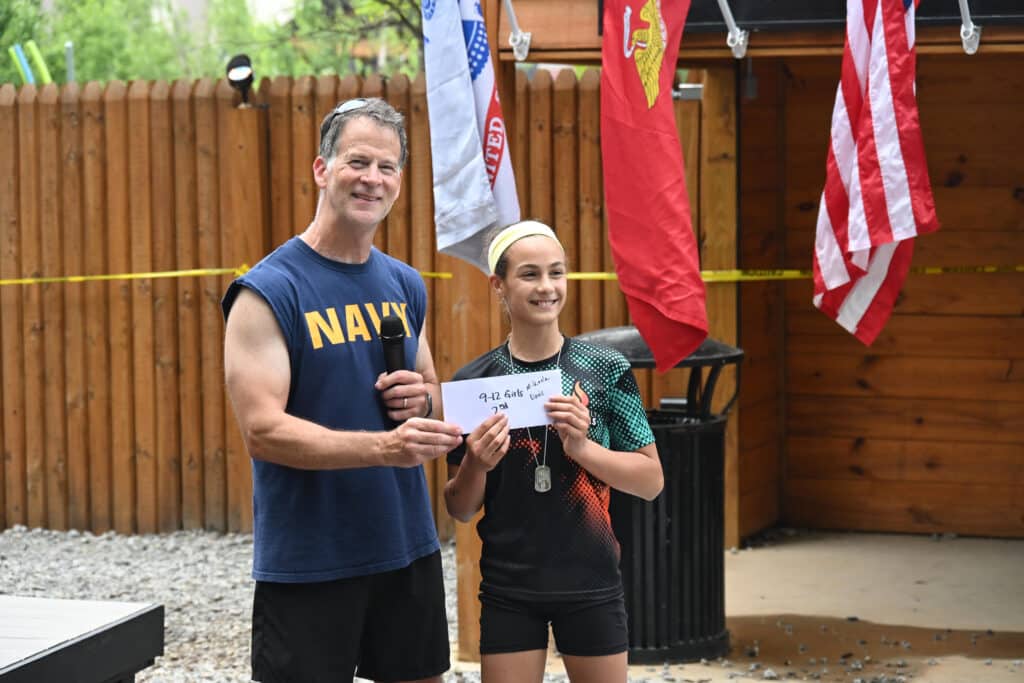
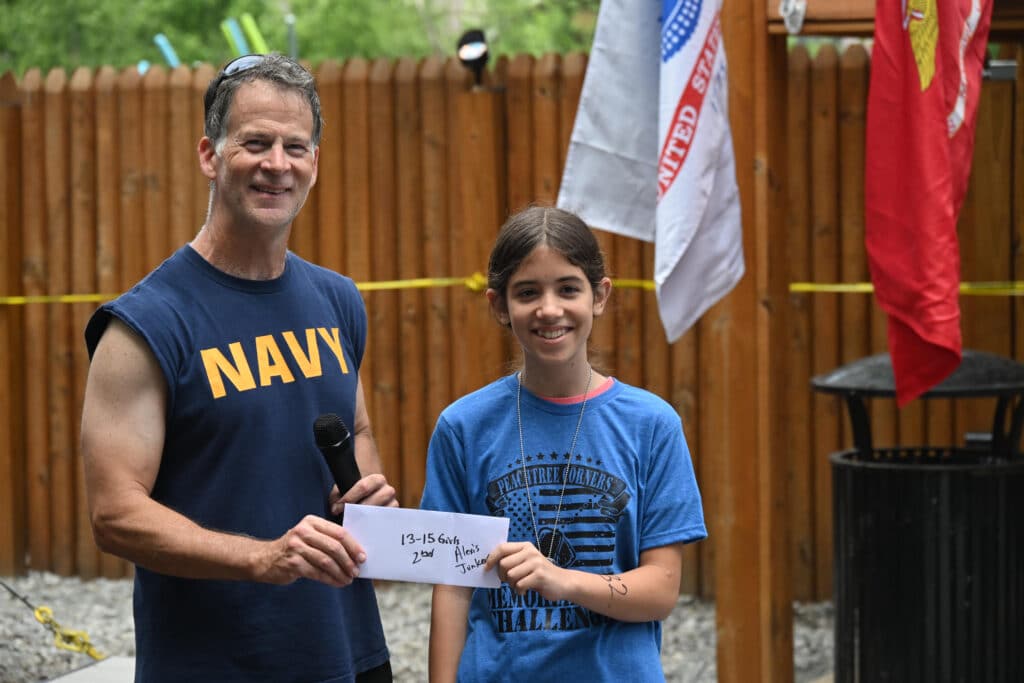
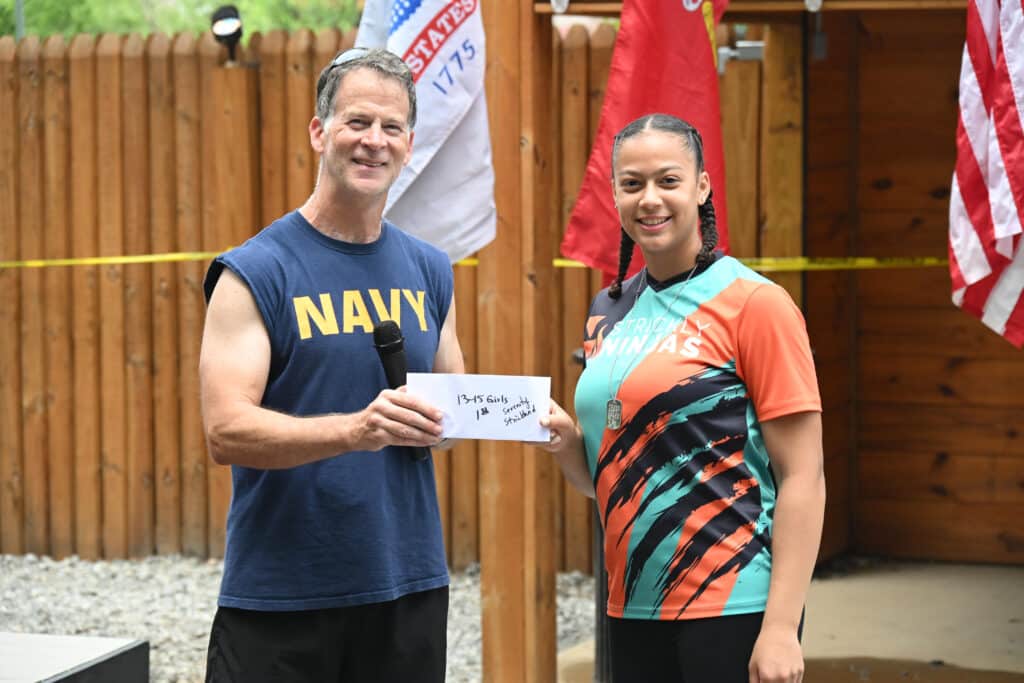
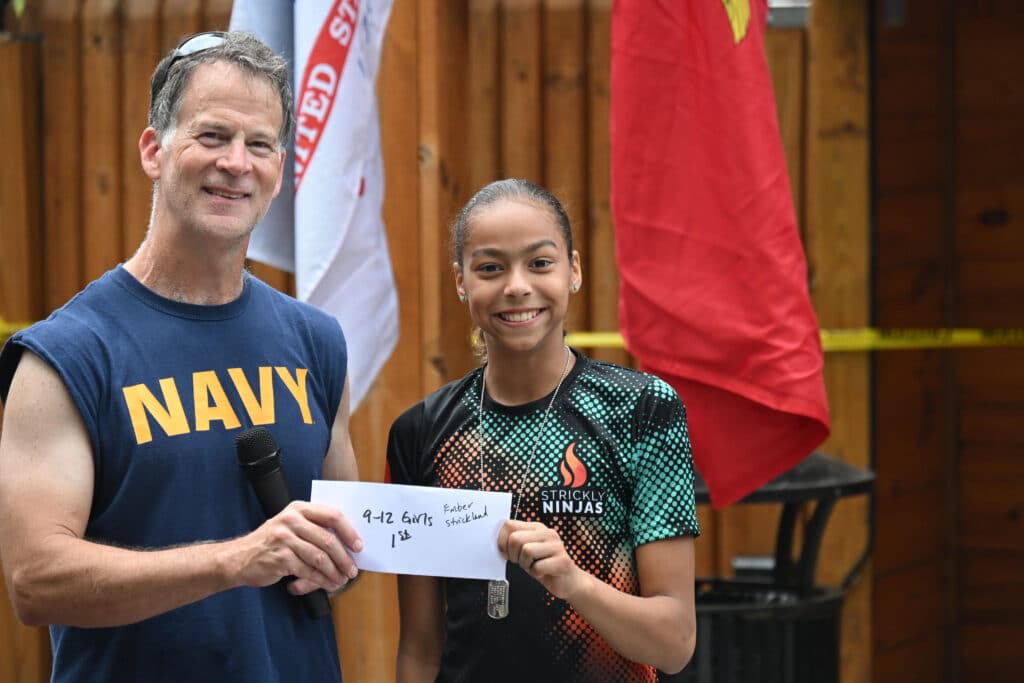

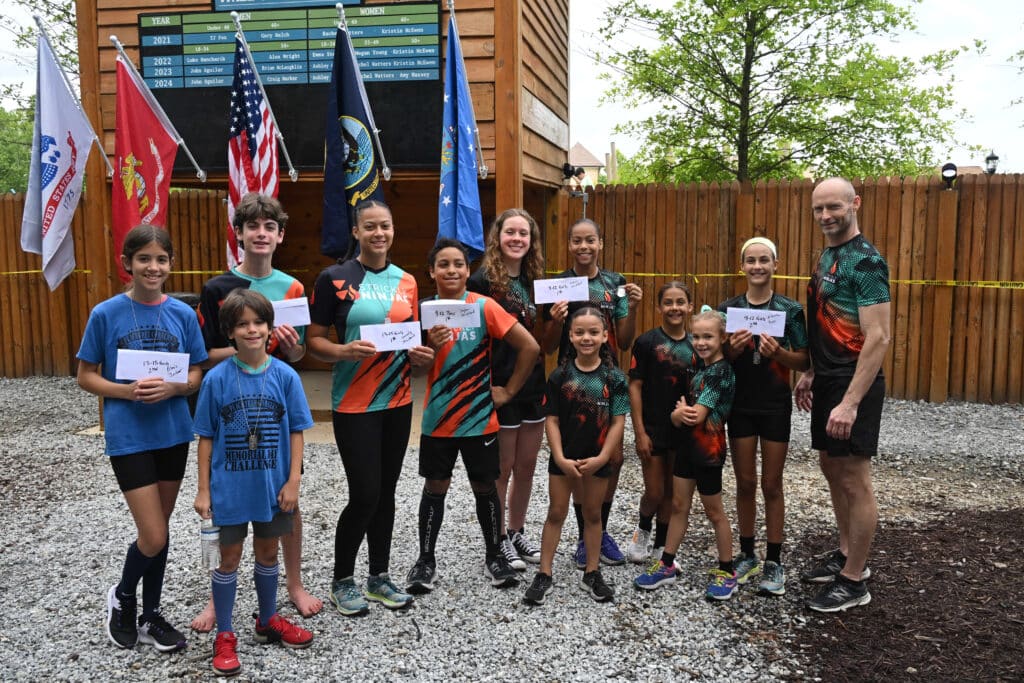
Each competitor received a t-shirt, dog tags and refreshments for attempting the challenge, and first and second place finishers also received awards during a short ceremony following the race.
Community contributions
Several local businesses also contributed to the success of this year’s Memorial Day Challenge with both material donations and volunteer support. King of Pops Peachtree Corners was on hand to give out popsicles for participants, and Vox-pop-uli provided the challenge t-shirts and signs.
Photos courtesy of Jim Stone, TYTAN Pictures.
Related
Community
Peachtree Corners Festival Awards Debbie Mason Drama Scholarship for 2025
Published
1 week agoon
June 2, 2025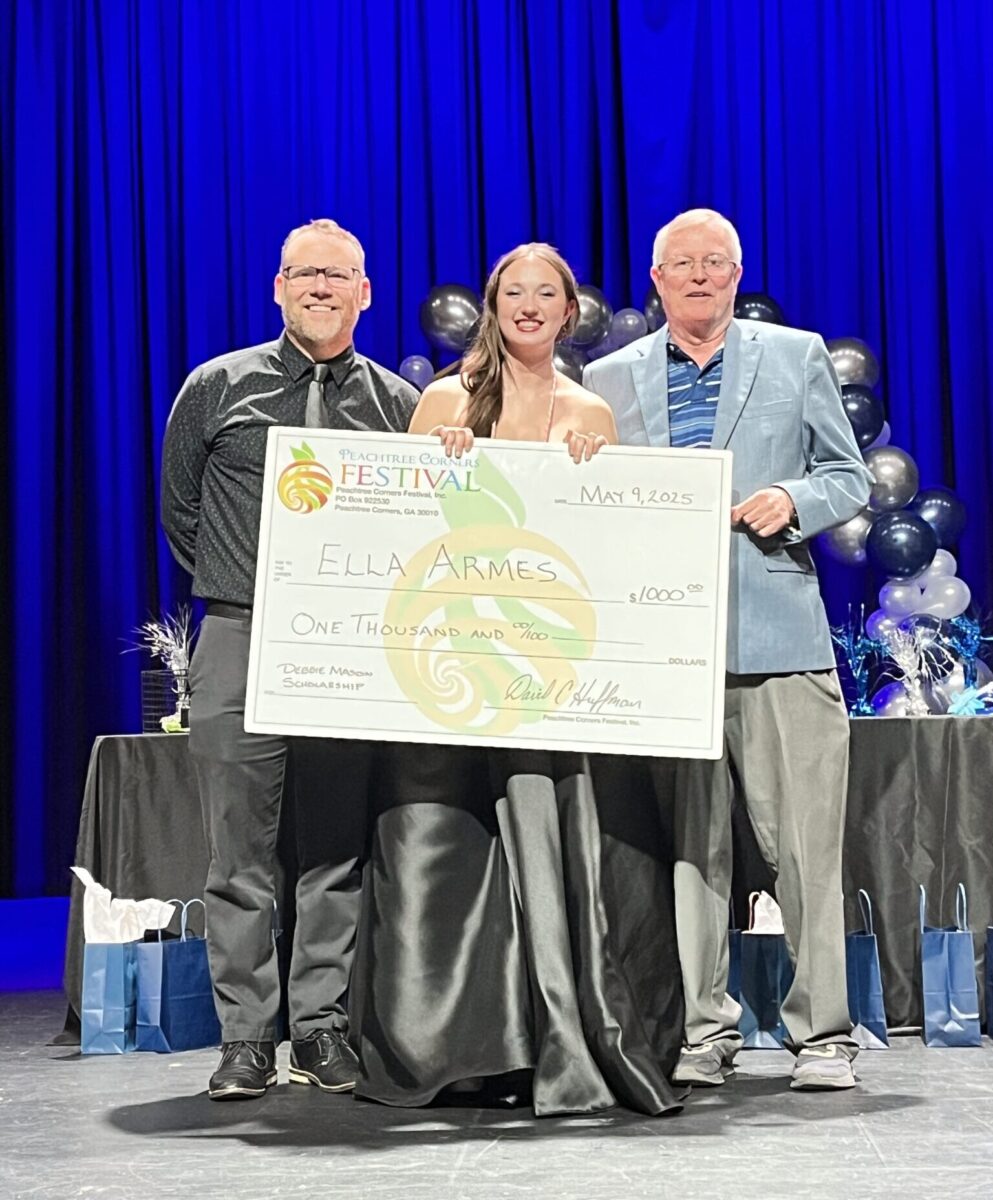
On May 9, the Peachtree Corners Festival awarded the Debbie Mason Memorial Scholarship for Drama to an outstanding Norcross High School drama senior. The recipient was Elizabeth “Ella” Armes, a student who has been involved in the Norcross High School drama department for four years and was most recently the primary stage manager directing the high school’s performances.
According to Terry Gabbard, director of theater at Norcross High School, Ella “was vital to the success of our program. She is an incredible young lady who will be continuing her studies in media and the arts in college.”
In fact, Ella plans to continue her education and work in theater and communications at Kennesaw State University starting this fall.
This marks the third year that the Peachtree Corners Festival has awarded the drama scholarship in the name of the late Peachtree Corners Festival co-founder, Debbie Mason.
In addition to being the first “First Lady” of the city of Peachtree Corners, Debbie and her family were long-time supporters of the drama program at Norcross High School. After her passing in 2023, the Peachtree Corners Festival established the Debbie Mason Memorial Scholarship for Drama as an appropriate way to honor her legacy.
About the Peachtree Corners Festival
The Peachtree Corners Festival is a non-profit, 501(c)(3) volunteer organization dedicated to bringing a safe, wholesome and family-friendly festival to the city of Peachtree Corners each year.
The organization’s goal is to foster community pride and civic involvement, not just through the weekend-long festival, but by giving back and supporting education and beautification initiatives within the city and recognizing deserving members of the community.
This year’s Peachtree Corners Festival will take place on the Town Green, September 20–21.
For more information, visit peachtreecornersfestival.com.
Related
Community
The PCBA Awards $500 to Light Up The Corners at After-Hours Event
Published
2 weeks agoon
May 28, 2025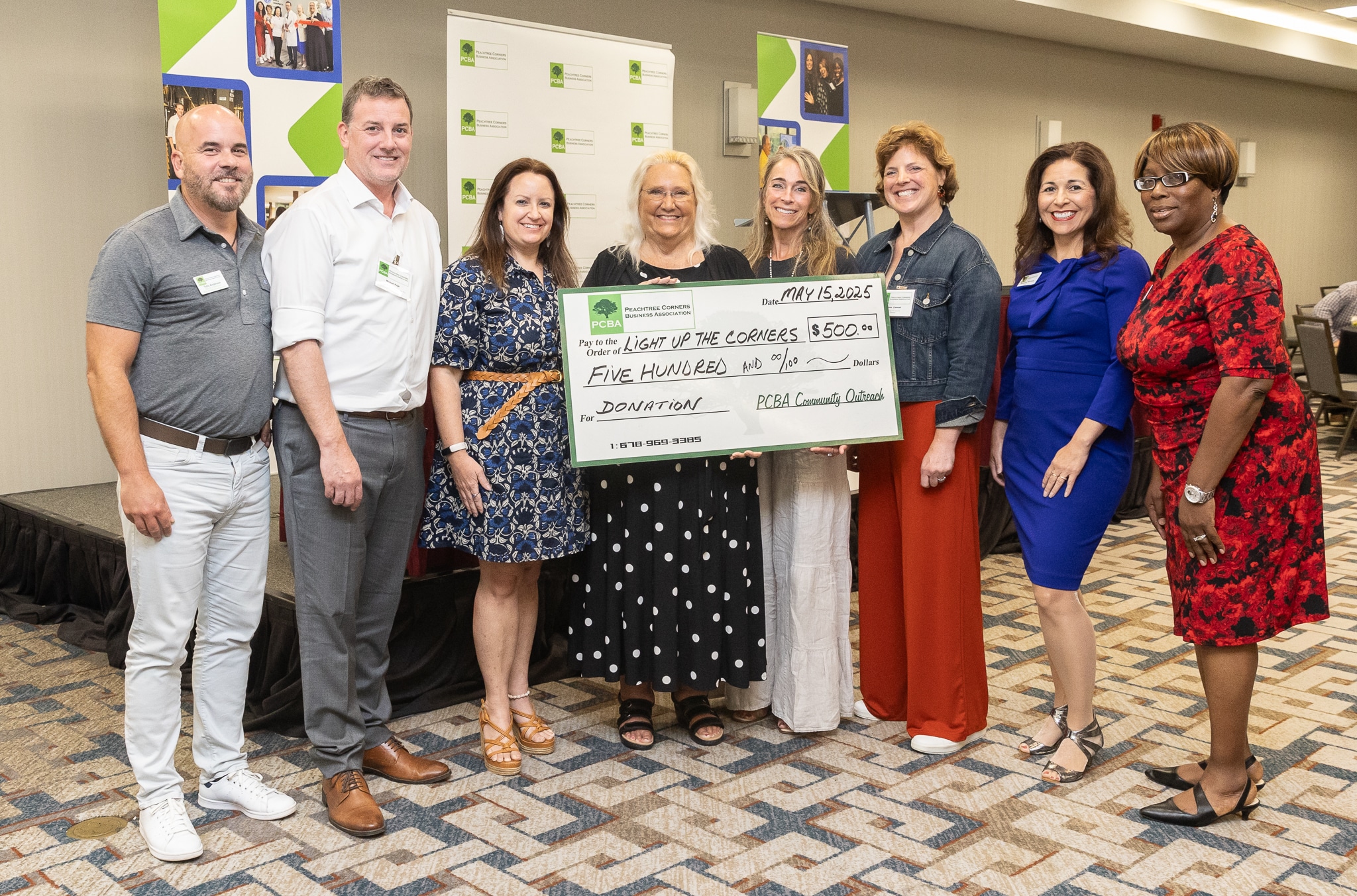
The Peachtree Corners Business Association (PCBA) awarded a check for $500 to Light Up the Corners at their May 2025 Business After Hours event.
Light Up the Corners, a 501 (c)(3) nonprofit, organizes the annual Glow Run and Twilight Trot — a nighttime, community celebration that’s equal parts race, fun run, party and fundraiser.
This year’s event is scheduled for Saturday, August 16 at The Forum in Peachtree Corners. The 1K Twilight Trot will start at 8 p.m., and the four-mile Glow Run will begin at 8:30 p.m. After the runners have crossed the finish line, a fun, post-race party will follow.
All proceeds from the Light Up the Corners event go to benefit less fortunate children and families in the community by giving them the chance to participate in life-enhancing programs and activities at the Fowler YMCA.
A history of charitable donations
PCBA’s donation to Light Up the Corners will help the organization meet its goal of assisting struggling families through their Why It Matters campaign. It’s the latest in a series of donations that PCBA has made over the years through their community outreach program.
“We are so proud that the PCBA has awarded 20 scholarships to outstanding future business leaders and donated in excess of $173,500 into our metro Atlanta community over the last 13 years,” said Lisa Proctor, PCBA board president.
Funds for PCBA’s community outreach program are raised throughout the year from PCBA membership, sponsorships and Tailgates and Touchdowns, an annual charity event they hold each August. Donations and scholarships are awarded at their Business After Hours events so that their members have the opportunity to learn more about the community organizations.
About Peachtree Corners Business Association
The Peachtree Corners Business Association is a business membership organization that focuses on innovative approaches, programs, shared resources, community outreach and opportunities for member businesses and professionals to connect, develop, grow and prosper.
The PCBA is made up of businesses of all sizes and types that want to expand their reach and grow their business within Peachtree Corners and the greater metro Atlanta area.
For more information call 678-969-3385, email membership@peachtreecornersba.com or visit peachtreecornersba.com.
Related
Read the Digital Edition
Subscribe
Keep Up With Peachtree Corners News
Join our mailing list to receive the latest news and updates from our team.
You have Successfully Subscribed!

Vox-Pop-Uli Launches RED Initiative for Veterans’ Support

From Zero to Accredited: Dunwoody’s Billy Grogan on Starting a City Police Department [Podcast]

City Collaborates with DNR for Deer Overpopulation Solutions

More Than Badges: Why Community Culture Drives Great Policing [Podcast]

The City and PCBA Welcome Ride Lounge with Ribbon Cutting Ceremony

The PCBA Awards $500 to Light Up The Corners at After-Hours Event

Peachtree Corners Festival Awards Debbie Mason Drama Scholarship for 2025

The Forum Welcomes [solidcore] with June 7 Grand Opening

A Look at this Year’s Memorial Day Challenge and Ceremony

Eric Christ: Upcoming Elections Update

The Forum Welcomes [solidcore] with June 7 Grand Opening

More Than Badges: Why Community Culture Drives Great Policing [Podcast]

The City and PCBA Welcome Ride Lounge with Ribbon Cutting Ceremony

From Zero to Accredited: Dunwoody’s Billy Grogan on Starting a City Police Department [Podcast]

Mustache The Band Set to Play the VoxStage on June 14

City Collaborates with DNR for Deer Overpopulation Solutions

Light up the Corners [Video]

Capitalist Sage: Business Leadership in Your Community [Podcast]

Cliff Bramble: A Culinary Adventure through Italy

Top 10 Brunch Places in Gwinnett County

A Hunger for Hospitality

THE CORNERS EPISODE 3 – BLAXICAN PART 1

Top 10 Indoor Things To Do This Winter

The ED Hour: What it takes to Remove Barriers from Education







